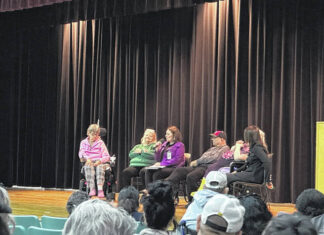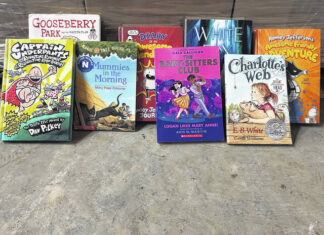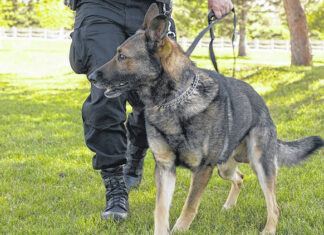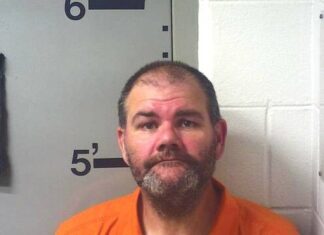After visiting with one of the newest Kentucky Athletic Hall of Fame inductees and lifelong Fleming County resident Woodie Fryman on a couple of occasions in his Ewing home, I find that I still have many of his thoughts and recollections in my notes and mind.
These are some of the remembrances Woodie shared about his 18-year career in Major League Baseball.
One aspect of the game of baseball that Fryman knows extremely well is the mechanics of pitching. He mentioned how he learned each and every day how to pitch more effectively, so after the long career he enjoyed, it is understandable he would possess a wealth of pitching knowledge.
Detroit Tigers manager Ralph Houk, one of the finest managers ever in the major leagues, wanted Fryman to be his pitching coach and offered him the job.
“By that time I had had enough of the travel involved in baseball and I was ready to come home to Kentucky,” said Fryman. “I believe Houk would have given me the freedom to run the pitching staff and some managers will not do that. They want to have complete control of everything with their club.”
One of Fryman’s secrets to pitching effectively was to always arrive early to the ballpark before a game.
“I would get there early to watch the opposing team take batting practice,” Fryman said. “That way I could see where certain hitters liked to be pitched and I tried to keep from pitching to their strengths.”
Fryman preferred pitching to power hitters as opposed to “punch and judy” hitters.
“Those hard swingers were easier for me to throw to,” said Fryman. “Hank Aaron was a great hitter, but he never hit a home run off me. He told me at the 1968 All-Star game that he had a difficult time picking up the ball from my delivery. One hitter that did drive me crazy was Billy Williams (the longtime Chicago Cub.) He was 10-for-14 off me at one point and then I changed the way I pitched him and he was 2-for-15 after that. I threw him inside and hard and had more success with that against him.”
The veteran lefthander served up some advice to young pitchers and even demonstrated the grip he used on several of his pitches.
“To be a good pitcher, you have to learn to throw to spots. I had God-given ability to throw the ball hard, but pitching is much more than that,” Fryman added. “The key is not in how hard you throw but learning to throw to locations. You have to move the ball around. If you have control and confidence and use your experience wisely, you can make a ton of money in baseball today.”
Like most pitchers, Fryman had a preference in the catchers who caught him over the years.
“In Montreal, I preferred Barry Foote, who was the backup to Gary Carter. He was a great kid and never forgot how I liked to pitch,” Fryman noted. “In Detroit, I usually had Duke Sims catching me when I went there in 1972. Bill Freehan was the regular catcher, but Duke and I just got along well. Pitchers just like certain catchers because of the way they call the game and handle your pitches.”
When Fryman broke into the bigs with Pittsburgh in 1966, the Pirates had a veteran club that was loaded with talent.
“We had Gene Alley at shortstop and Bill Mazeroski playing second base and they were the best double play combination I ever had behind me,” said Fryman. “Mazeroski would actually take infield practice barehanded to give him a better feel and use the proper technique. Johnny Pesky, who was one of our coaches, said ‘Maz’ was the best he ever saw and Pesky saw a lot of great players in his long career.”
Hall of Famer Roberto Clemente was another star player on those Pirate teams and was often misunderstood by the media at that time. Clemente tragically died in a plane crash when he was returning to his native Nicaragua to help the people there following an earthquake.
“Roberto was a good person and a great player, and his wife and my wife, Phyllis, were good friends. He had a great arm and was the best outfielder I ever saw defensively,” recalled Fryman. “After he died, we sent her a note and she replied and thanked us.”
Clemente was one of the numerous Hall of Famers Fryman played with and against in the major leagues.
Some of the pitchers he admired included Catfish Hunter, Juan Marichal and Nolan Ryan.
“Catfish and Juan could throw the ball anywhere they wanted. Hunter didn’t throw that hard, but had excellent control, and Marichal had so many different pitches,” said Fryman. “Nolan was a helluva guy and the hardest thrower I ever saw. He began the game throwing hard and finished the game throwing just as hard.”
In his career, Fryman hurled four one-hitters, 27 shutouts, 68 complete games and was an outstanding starting pitcher for many years.
“Pitchers always used to finish what they started, but nowadays they want to come out,” Fryman said.
In his years in Montreal from 1978-1982, he became a top-notch reliever with the Expos. Fryman said he was a much better pitcher his last three years in the major leagues because of the knowledge he gained throughout the years.
He recalled a game in Cincinnati when he was pitching for Montreal and the manager came out to the mound to take him out of the game because Johnny Bench was coming to the plate and he wanted to lift Fryman for a righthander, bullpen ace Jeff Reardon.
“I needed one out for the save and I knew I could get him out so he left me in,” Fryman said. “I got him to bounce back to me on a low breaking ball to end the game.”
Outfielder Al Oliver, a teammate and opponent during Fryman’s career and a native of Portsmouth, Ohio, said Fryman was the toughest pitcher for him to hit against in his long career. Bench also had kind words when asked about Fryman in the video presentation at the Hall of Fame dinner in Louisville.
Fryman, who doesn’t watch much baseball anymore, is a throwback to when the game and life in general were much simpler.
“I don’t like it when I see players not giving 100 percent and jogging to first base instead of running everything out hard,” Fryman said. “Even big Frank Howard, who was 6-foot-7 and weighed over 300 pounds when we were teammates in Detroit, would run as fast as he possibly could, which wasn’t real fast.”
Fryman’s skipper in Detroit on that American League Eastern Division championship team was the inimitable Billy Martin.
“When I was first traded there from the Phillies, Billy had me in the bullpen,” said Fryman. “Later he moved me to the starting rotation and I won eight straight starts. We had a very good club, but the Oakland Athletics and Cincinnati Reds were the two best teams and they played in the World Series.”
Fryman still receives autograph requests in the mail and signs each and every one. He also enjoyed signing before games when he played.
“One time I was in the bullpen in Los Angeles and signed about 120 autographs during the game,” Fryman remembered. “Luckily, the manager didn’t catch me.”
Fryman seems to enjoy recalling players and times from the past, but enjoys even more living in Ewing and getting away to hunt and fish.
He has many fond memories of a long and fruitful career, but appears a bit embarrassed when it comes to the honors given him recently.
“It is a thrill and so was going into the Montreal Expos Hall of Fame ten years ago,” said Fryman. “I enjoy seeing the old players and fans.”
Along with the induction into the Kentucky Athletic Hall of Fame two weeks ago, Fryman will be honored in his hometown of Ewing Sunday at the firehouse from 2-4 p.m.
Senator Jim Bunning, who Fryman was dealt for on December 15, 1967, from the Pirates to the Phillies, will be among the dignitaries honoring Fryman’s accomplishments.





